Newport Beach Brain Injury Attorney
What You Should Consider Doing When Returning to Work After Recovering From a Brain Injury
The brain is arguably the most important organ in the body. It controls your thoughts, movements, emotions, and memory by sending and receiving signals throughout your body. Any damage done to the brain could cause a dramatic impact on your quality of life. It is likely that you may face cognitive, behavioral, and physical disabilities. Under severe circumstances, a brain injury could cause a person to remain dependent on receiving care from others for the rest of their life.
Medical treatment and therapy may be required long-term to allow a person to live a comfortable life. Costs for these services can leave you in a financial burden. However, if your brain injury was caused by a negligent party, you may file a personal injury claim against them to acquire recoverable compensation, such as present and future medical bills, lost wages, pain and suffering, and more.
At West Coast Trial Lawyers, our experienced Newport Beach brain injury attorneys are available 24/7 to offer legal assistance. We will help strengthen your claim and negotiate with insurance companies to get you the justice and compensation you deserve. With our track record of winning more than $1 billion in settlements for our clients, we are confident that we will deliver a good outcome to your case.
To schedule a free, no-obligation consultation at our Newport Beach personal injury law firm, please contact us by calling (949) 822-9593 or emailing [email protected].
Working After a Brain Injury
It is normal for a person to develop a lot of thoughts and emotions as they are preparing to head back to work after suffering a brain injury. Below, we have created some helpful tips you should consider to ensure that you do not overwork or overwhelm yourself as you return to the workplace after a long hiatus.
Requesting for an Accomodation
According to the Americans with Disabilities Act (ADA), an employer must make reasonable adjustments to accommodate a disabled employee. These accommodations may include:
- Giving more breaks
- Offering a different position in the firm
- Giving less work to do
- Allowing the employee to gradually come back to work
- Offering less work hours
It would be ideal for the employee to notify the employer of their current health status from time to time to allow the employer to adjust accommodations based on the information they are being given. If the employee is said to have made a full recovery from their brain injury and is able to perform work-related tasks they were previously given to do before their injury, the employer may remove the accommodation.
Maintain a Positive Mindset, but Be Realistic
It is essential to maintain a good attitude when you return back to the workplace. Try to:
- Accept constructive criticism
- Be comfortable with asking others if you need something
- Use strategic methods to help improve your work skills
As you head back to work, you might start to wonder if you will be able to perform your work-related tasks the same way as you did prior to your injury. Instead of focusing on the “what ifs,” think about how you could overcome these problems if it were to happen. Figuring out ways to approach a mistake can help you become more prepared and organized.
You should also not set any unrealistic expectations of your work performance. If you fail to reach your work objectives, it will only lead to low self-esteem and disappointment. Just take it easy on yourself and try your best.
Speaking to Your Employer
You do not have to dive into any personal details about your brain injury to your employer, however, you should at least mention if your health may put you or others at risk of falling behind with work-related tasks. It is suggested that you communicate with your employer by being open with them about limitations you are currently experiencing due to your brain injury. They should understand your health condition and offer reasonable accommodations until you make a full recovery.
Communication With Your Co-workers
You are not obligated to inform your co-workers about your brain injury. You have the choice to share that personal information with others.
There are employees who do choose to give co-workers a heads up about their health condition. This helps co-workers get an idea on what you are capable of completing or what you may need extra help with. Special arrangements could be made on their behalf to make it more convenient for you to complete your assignments.
Consider sharing either full or limited information, it is your choice. You have the right to not inform others about it if they ask.
West Coast Trial Lawyers Is Here to Help
If you are suffering from a brain injury due to the negligence of another individual, West Coast Trial Lawyers has experienced Newport Beach brain injury attorneys that will help you get the justice you deserve.
To schedule a free, no-obligation at our Newport Beach personal injury law firm, please contact our 24/7 legal team by calling (949) 822-9593 or emailing [email protected].




